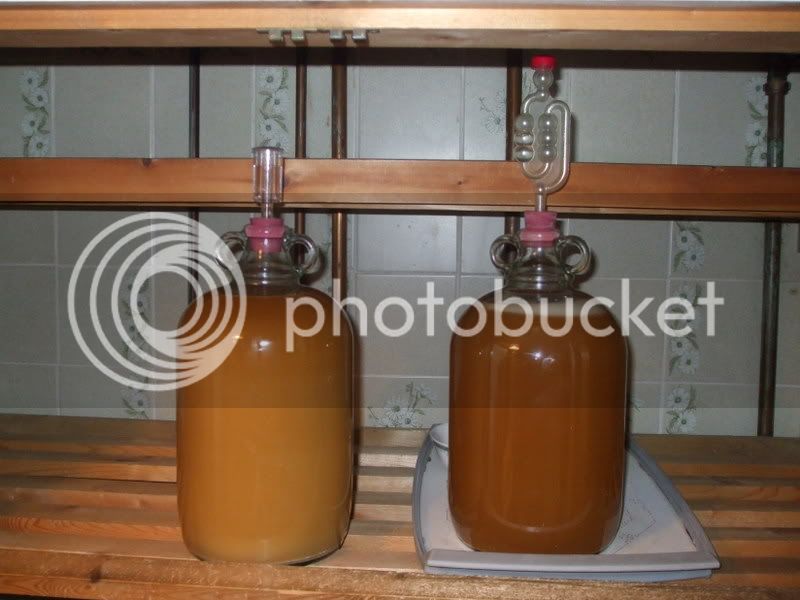WineCheater
Junior
- Joined
- Sep 19, 2008
- Messages
- 5
- Reaction score
- 0
Hi all havent been on for long enough, but with autumn (fall) beginning over here in the UK its time to start brewing
around 3 weeks ago I started a victoria plum wine going recipe followed was
3.5 qt. water
2 lbs sugar or 2 lbs. light honey
4 lbs. ripe sweet plums or 3 lbs. wild plums
5 tsp. acid blend (Do not use with wild plums)
1/8 tsp. tannin
1 tsp. yeast nutrient
1 Campden tablet (recommended)
1/2 tsp. pectic enzyme
Champagne or Montrachet yeast
followed it with the sugar recipe and it went very well indeed, my question to pose to the country wine makers out there is this
after only 3 weeks my wine has fermented and pretty much cleared itself, it is dry with a fairly vauge taste of the plum ingredient and is near enough the colour of reisling but with quite an acidic bite, will this bite mellow over time ageing? and more importantly will the flavour of the original plum ingrediants come through over the months?
I have racked off the heavy sediment and left in a clean demijon under airlock incase it hasnt quite finished yet
I guess I'll live in hope that this turns out to be a winner,.......its not unpleasant but is a bit bland
any thoughts?
Oh and heres a pic of it at the start just for fun

around 3 weeks ago I started a victoria plum wine going recipe followed was
3.5 qt. water
2 lbs sugar or 2 lbs. light honey
4 lbs. ripe sweet plums or 3 lbs. wild plums
5 tsp. acid blend (Do not use with wild plums)
1/8 tsp. tannin
1 tsp. yeast nutrient
1 Campden tablet (recommended)
1/2 tsp. pectic enzyme
Champagne or Montrachet yeast
followed it with the sugar recipe and it went very well indeed, my question to pose to the country wine makers out there is this
after only 3 weeks my wine has fermented and pretty much cleared itself, it is dry with a fairly vauge taste of the plum ingredient and is near enough the colour of reisling but with quite an acidic bite, will this bite mellow over time ageing? and more importantly will the flavour of the original plum ingrediants come through over the months?
I have racked off the heavy sediment and left in a clean demijon under airlock incase it hasnt quite finished yet
I guess I'll live in hope that this turns out to be a winner,.......its not unpleasant but is a bit bland
any thoughts?
Oh and heres a pic of it at the start just for fun





